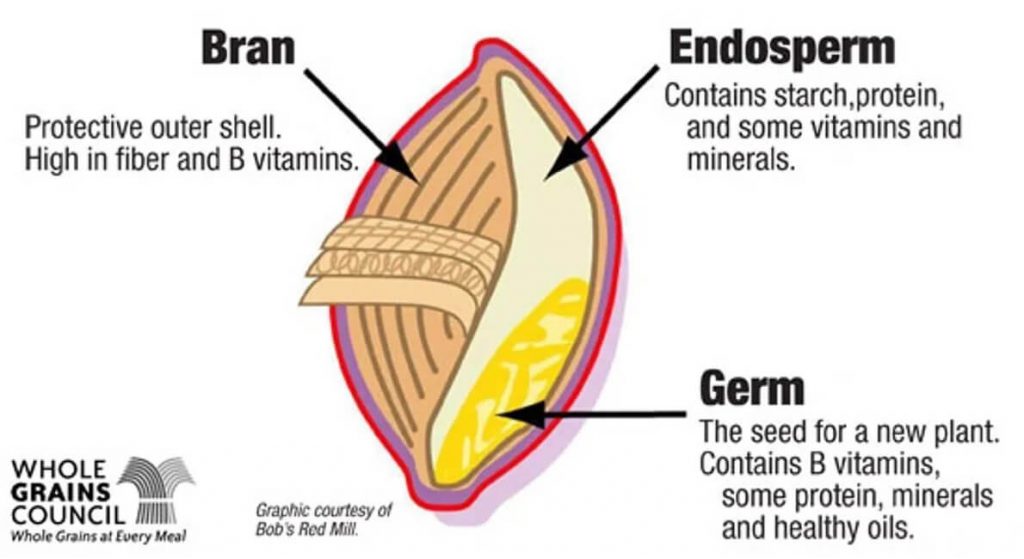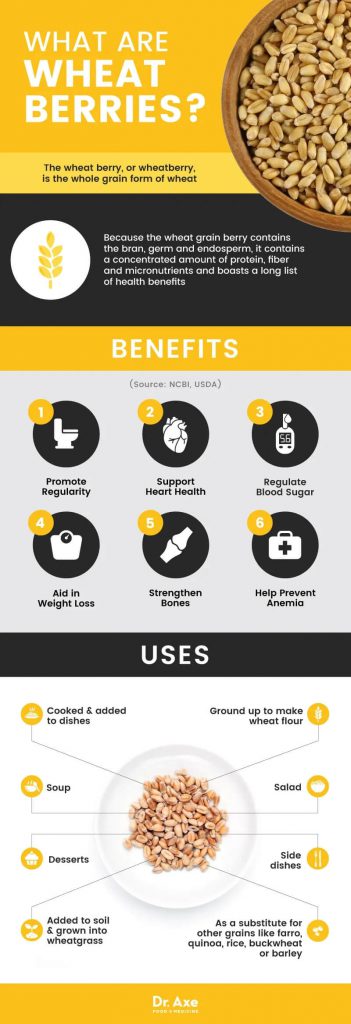
The Benefits Of Wheat Berries
Food For Thought
 4 Generations Organic hard red winter whole wheat berries are a wonderful source of fiber. They hold up to 24% of the fiber needed for one whole day solely in a single quarter-cup serving. Fiber is very crucial to your daily diet to support the digestive system. Fiber has also been proven to drastically lower cholesterol levels, making it less likely for fat to accumulate in arteries, maximize blood flow, and keep your heart in excellent shape. With the rapidly growing number of Americans being diagnosed with some form of heart disease, fiber should be an important part of every diet.
4 Generations Organic hard red winter whole wheat berries are a wonderful source of fiber. They hold up to 24% of the fiber needed for one whole day solely in a single quarter-cup serving. Fiber is very crucial to your daily diet to support the digestive system. Fiber has also been proven to drastically lower cholesterol levels, making it less likely for fat to accumulate in arteries, maximize blood flow, and keep your heart in excellent shape. With the rapidly growing number of Americans being diagnosed with some form of heart disease, fiber should be an important part of every diet.
Consuming our organic whole wheat berries has endless benefits. Not only do the wheat berries promote regularity, they support health, blood sugar, and weight loss. They also aid in bone strength, prevention of anemia and much more.
Brittle bones are also no match for wheat berries! Manganese naturally found in the wheat berry, plays a crucial role in bone mineralization as well as the development of collagen and bone cartilage. Within one serving of wheat berries, you meet your body’s daily prerequisite of manganese. These berries provide and impressive 97% of the daily recommended value.
The consumption of wheat is increasing globally, including in countries with climates that are not suitable for wheat production. Wheat‐based foods provide a range of essential and beneficial components to the human diet, including protein, B vitamins, DF, and phytochemicals. These components may also vary widely in amount and composition due to effects of genotype and environment. DF is particularly important as consumption is associated with reduced risk of CVD, type 2 diabetes, and certain forms of cancer. DF components also have high heritability and their amount should therefore be amenable to manipulation by breeding, particularly if molecular markers can be established to reduce the need for expensive chemical analyses during screening. (Source: https://www.ncbi.nlm.nih.gov/pmc/articles/PMC4998136/)
The best way to take advantage of these amazing benefits are to cut out the ultra-processed foods as well as all “enriched” flours and go straight to the source, our amazing hard red winter wheat berries.
Do we need to worry about eating wheat?
The last few years have seen increasing concerns, particularly in the media and lay press, about the effects of wheat‐based foods on health, with the increasing adoption of wheat‐free or gluten‐free diets. These concerns have largely been propagated through the media, particularly the popular press, Internet and social media, rather than conventional medical and public health channels, and the evidence base is often obscure. Nevertheless, the impact has been dramatic and of concern not only for wheat producers and the food industry but also for public health due to the impact on the intake of components, which are conventionally consumed in wheat products, such as dietary fibre, B vitamins and minerals (Steer et al. 2008).
